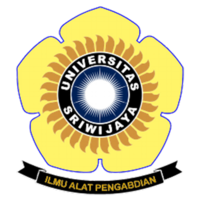Pemanfaatan Limbah Cair Kelapa Sawit terhadap Perubahan Beberapa Sifat Fisik Tanah di Areal Perkebunan Kelapa Sawit PT. Waymusi Agroindah
Abstract
Priatna SJ. 2019. Utilization of palm oil liquid waste on some changes in the soil physical properties at PT. Waymusi Agroindah palm oil plantation area. in: Herlinda S et al. (Eds.), Prosiding Seminar Nasional Lahan Suboptimal 2019, Palembang 4-5 September 2019. pp. 554-558. Palembang: Unsri Press.
Palm oil liquid waste is one type of palm oil waste that has the potential to be reused to improve the quality of the land and support the growth of the oil palm plantations themselves, considering that the potential of this waste is quite large and the elements needed are very important to improve chemical fertility and soil physics. This research activity aims to determine the effect of palm oil liquid waste utilization (LCPKS) on improving some physical properties of soil. This research was carried out on oil palm plantation areas that were applied to liquid waste, by observing soil samples on two into the soil (0-30 cm and 30-60 cm). Soil sampling is carried out at three sampling points, namely: near the sewage application ditch, between oil palm plants and in the control location. Parameters of observed soil physical properties include: permeability; porosity, texture and weight of soil contents. The results showed that the utilization of liquid waste had an effect in increasing the value of soil porosity (1.3 to 18.25% and soil permeability (25.75% to 78.7%), and reduced the value of soil weight (1.77 to 40.24%), while the texture has no effect, where the results of the texture determination before application and after application have the same texture class, namely: sandy clay to sandy clay loam.
Keywords: palm oil, palm liquid waste, soil physical characteristics
Palm oil liquid waste is one type of palm oil waste that has the potential to be reused to improve the quality of the land and support the growth of the oil palm plantations themselves, considering that the potential of this waste is quite large and the elements needed are very important to improve chemical fertility and soil physics. This research activity aims to determine the effect of palm oil liquid waste utilization (LCPKS) on improving some physical properties of soil. This research was carried out on oil palm plantation areas that were applied to liquid waste, by observing soil samples on two into the soil (0-30 cm and 30-60 cm). Soil sampling is carried out at three sampling points, namely: near the sewage application ditch, between oil palm plants and in the control location. Parameters of observed soil physical properties include: permeability; porosity, texture and weight of soil contents. The results showed that the utilization of liquid waste had an effect in increasing the value of soil porosity (1.3 to 18.25% and soil permeability (25.75% to 78.7%), and reduced the value of soil weight (1.77 to 40.24%), while the texture has no effect, where the results of the texture determination before application and after application have the same texture class, namely: sandy clay to sandy clay loam.
Keywords: palm oil, palm liquid waste, soil physical characteristics
Full Text:
PDFArticle Metrics
Abstract view : 427 timesPDF - 916 times
Refbacks
- There are currently no refbacks.

